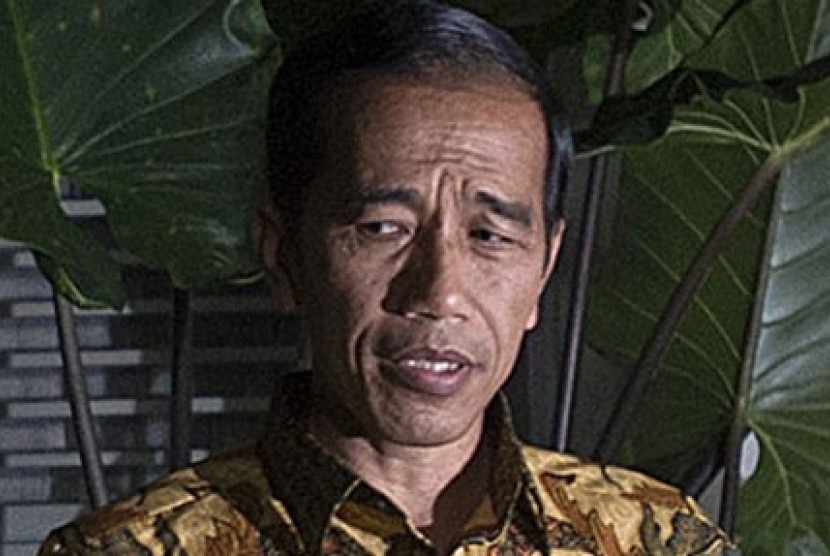REPUBLIKA.CO.ID, JAKARTA -- The deflation that had occurred in the past two months had a positive impact on the people, stated President Joko Widodo (Jokowi).
"We were successful in curbing the inflation rate to a significant level. It even led to deflation, which will have a good impact on economic development. It has a good impact on the people because they can maintain their purchasing power and their burden to buy goods can be alleviated," President Jokowi noted while opening a plenary cabinet meeting at the Presidential Office here on Wednesday.
He pointed out that the country recorded a deflation of 0.24 percent in January 2015 while in February 2015, it stood at 0.43 percent.
With regard to the increasing prices of several basic necessities such as rice, the president emphasized the need to monitor the developments in commodity prices on a daily basis.
"I want the developments in prices to be monitored on a day-to-day basis because the fluctuations in inflation will start from here," he noted.
He cited as an example the increase in the rice prices, which had begun in December last year. It could have actually been tackled by taking anticipatory measures.
"Actually, anticipatory steps could have been taken in January, apart from the delay in the planting and harvesting seasons, so that the increase in prices could have been handled," Jokowi remarked.
However, he expressed confidence that the distribution of rice for the poor (Raskin) and the rice market operations now being launched would drive down the rice prices again in one or two weeks.
"So, if the price of rice has begun to go down, please follow it up, so that it will no longer increase beyond control again," the president stressed.
In the meantime, the Central Bureau of Statistics (BPS) stated that the 0.36-percent deflation recorded in February 2015 was the second-highest for the same month in the past 50 years.
The highest deflation was recorded at 0.5 percent in February 1985, BPS Deputy Chief for Distribution and Service Statistics Sasmito Hadi Wibowo noted here on Monday.
He pointed out that deflation rarely occurs in February, adding that the country saw deflation in the same month only five times in the past five decades.
"From 1966 to 2015, or in the past 50 years, we have recorded deflation only four or five times (in February). That is very rare," he explained.
Earlier in the day, the BPS stated that the 0.36-percent deflation in February 2015 was fueled by a decline in the prices of food and fuel oils.
Deflation over the past couple of months added up to 0.61 percent in February 2015; the country had recorded 0.24 percent deflation in January 2015.
"This was rare as the country usually recorded inflation in January and February," he observed.
Among the commodities that triggered the deflation were red chili, gasoline, bird's eye chili, intercity public transport tariff, purebred chicken, egg, cement, diesel, tomato, green chili, and onion, he revealed.
"The price of red chili fell due to abundant supplies and smooth distribution, while the price of gasoline declined due to a fall in the global oil prices and the government's fuel policy," he remarked.
However, an increase in electricity tariffs, flight tickets, house rents, gold jewelry, filtered clove cigarettes, cars, and construction workers' wages had contributed to the inflation, he noted.



